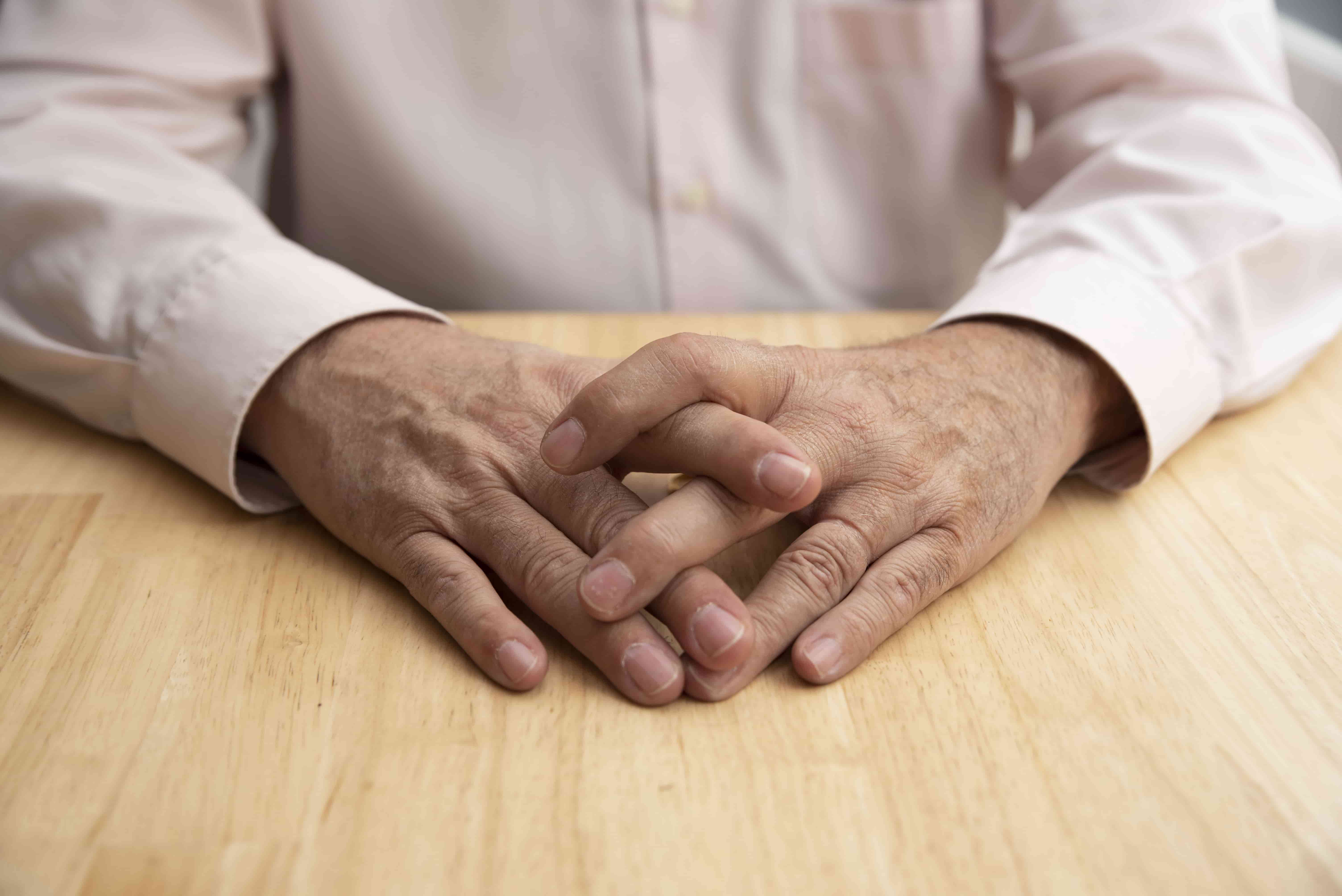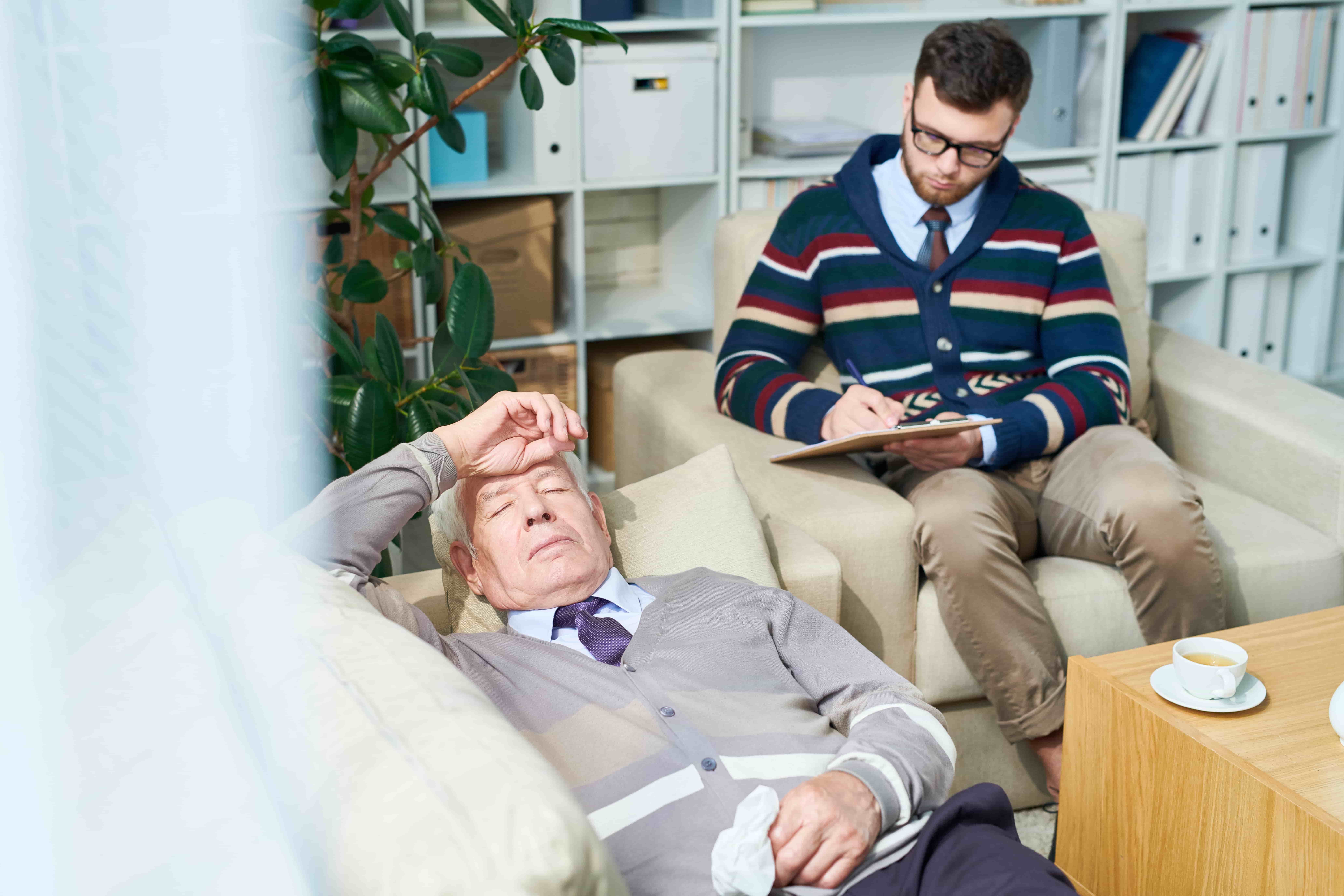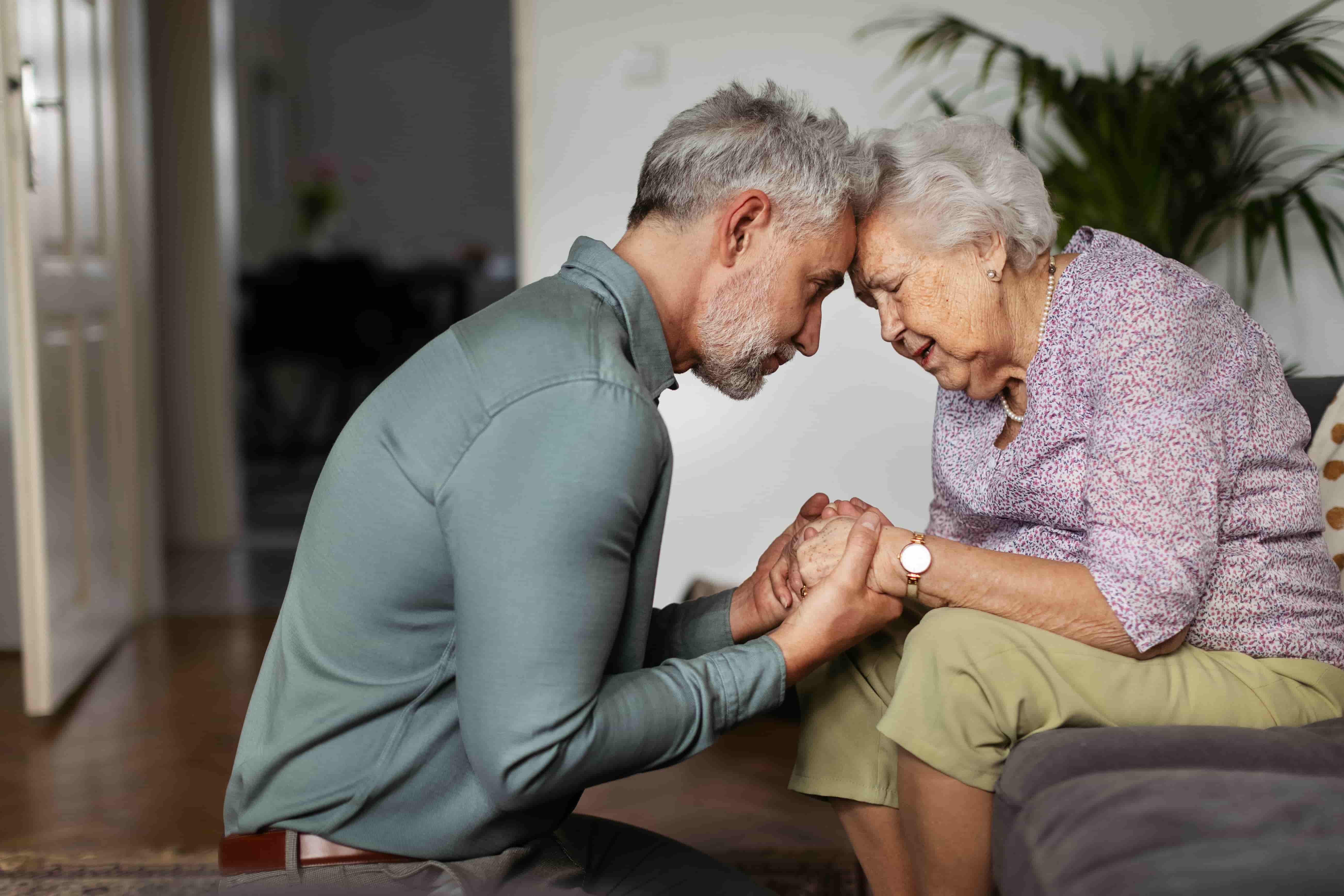“In our hearts, we all know that death is a part of life. In fact, death gives meaning to our existence because it reminds us how precious life is.” — MentalHealthAmerica.net
When someone you love dies, you're experiencing "life's most stressful event," with the word "bereavement" literally meaning to be "deprived by death."
When this happens, you will likely experience a range of emotions, even if the death was expected. This can include numbness, denial, disbelief, confusion, shock, sadness, yearning, anger, humiliation, despair, and grief.
How do you handle these feelings and the mental strain that accompany grief? This article will show you healthy ways to cope with grief.
Factors Influencing Grief Responses

When we experience grief and loss, we react differently depending on several factors. Sometimes, we mourn for days, weeks, and months. While other times, we come to terms with the situation more quickly. Below are the factors that influence how you grieve the loss of your loved one.
A. Nature of the loss
When you lose a family member or friend, the situation surrounding their death could make it too much to bear. If you lose a parent through natural old age, the grieving process would be easier to handle than the loss of a child.
You may also feel deep hurt if the person who has died suffered from a brief illness that could have been easily cured if found out early. The nature of the loss is one of the most prevalent factors influencing how we grieve.
B. Relationship to the deceased
Your relationship with the person could also make it difficult to cope with the pain. Losing someone you love will be more challenging than losing a colleague at work. While both losses can break your heart, the emotions that accompany grief when a loved one dies are harder to deal with.
C. Personal coping mechanisms and resilience
While there's no right or wrong way to grieve, some of us have coping mechanisms that make it easier to get through the pain. For some, it's self-care; for others, it's seeking professional help. Find ways to cope with the grief, and you may just get through it faster.
D. Support systems and social connections
Coping with loss all by yourself can make the pain of grief last longer than usual. Although some people are able to cope more easily when they're alone, it is advised to have loved ones and friends around you while going through it.
Symptoms Of Grief

The symptoms of grief can be classified into emotional and physical symptoms. These symptoms may follow the death of a loved one or the loss of something you hold dear.
A. Physical symptoms of grief
-
Fatigue.
-
Sleep disturbances.
-
Appetite changes.
-
Digestive issues.
-
Headaches.
-
Weakened immune system.
-
Aches and pains.
-
Heartache or "Broken Heart" syndrome.
-
Chest tightness.
-
Shortness of breath.
-
Increased heart rate.
-
Dizziness or lightheadedness.
-
Lowered energy levels.
-
Compromised concentration.
-
Skin reactions.
B. Emotional symptoms of grief
-
Sadness.
-
Anger.
-
Guilt: You may feel guilty while dealing with grief, even if you had nothing to do with or against the person who died.
-
Anxiety.
-
Depression.
-
Numbness or disbelief.
-
Yearning and longing.
-
Confusion.
-
Regret.
-
Relief.
-
Isolation and loneliness.
-
Mood swings.
-
Fear of the future.
-
Searching and yearning.
-
Lack of interest.
Types Of Grief

Each type of grief reflects the unique ways you may respond to loss. It's essential to recognize that there's no one-size-fits-all approach to grieving, and you may experience a combination of these types or a transition between them as you navigate your emotional journey.
- Anticipatory Grief: This type of grief occurs when you know a loss is imminent, such as when a loved one is terminally ill. You may experience anticipatory grief as you mentally and emotionally prepare for the loss.
- Complicated Grief: Also known as prolonged grief disorder or complicated bereavement, this type of grief is characterized by intense and persistent symptoms that hinder your ability to adjust to a major loss. People with complicated grief may struggle to find acceptance or experience symptoms similar to major depression.
- Disenfranchised Grief: This refers to grief that is not openly acknowledged or socially validated. This type of grief can occur when you experience a loss that society doesn't recognize as significant, such as the death of a pet, a miscarriage, or the loss of a non-traditional relationship. You're not alone.
- Delayed Grief: Delayed grief occurs when you don't immediately experience the full impact of your loss. The grief might resurface later, triggered by a specific event or a period of emotional readiness.
- Secondary Grief: This type of grief is experienced by people close to the primary griever. For example, friends, family members, or caregivers can experience their own grief as they witness and support the primary griever's emotions.
- Traumatic Grief: This type of grief requires professional help and is associated with sudden, unexpected, or traumatic losses. It can lead to symptoms similar to post-traumatic stress disorder (PTSD), such as nightmares, intrusive thoughts, and avoidance of reminders.
You may also experience a strong, acute grief even if you don't express your emotions openly.
Coping Strategies For Grief

Are you trying to cope with the loss of a loved one? The following coping strategies can help make it easier and faster
1. Allowing yourself to grieve
Understand that grief is a natural response to loss or a change in what we consider normal, and it happens to everyone who has a heart. At the loss of a close friend or family member, we may experience a wide range of emotions ranging from sadness to anxiety, depression, and even guilt. These feelings are normal and temporary.
Allow yourself to feel whatever pain or discomfort comes with the grieving process, and you'll notice how you gradually move past it. The longer you hold the pain in, the longer it eats you up, and the harder it is to move past it.
2. Seeking support
You're not an island. The death of a family member or the loss of something special may throw you into a downward spiral you cannot escape by yourself. Seek the support of others who care about you and understand what you're going through.
People who love you will likely try to help you. They might, for example, tell you when they notice concerning behavioral changes in you. They might spend extra time with you so you don't feel as lonely—or they may give you extra time and space to process your feelings. If a friend or family member is doing something beneficial, let that person know.
3. Self-care and well-being
After you lose someone close to you, you may be tempted to dwell on the past. And, although it's normal to think about your loved one and to remember good times (challenging ones, as well), you need to focus on the present, too.
Self-care includes eating well, getting enough rest, seeing your doctor as needed, and avoiding any temptations you may have to use alcohol and/or medications to try to numb your feelings of grief.
4. Expressing emotions
When you're mourning the loss of a loved one, consider expressive ways to help you come to terms with your loss. Writing, music, arts, photography, and dance have been proven to help people cope with grief.
Consider joining a support group if you need to talk and express your feelings to a group of people or a mental health professional.
5. Postpone Major Decisions, Whenever Possible
Grieving takes a lot of patience. So, give yourself time to grieve, and avoid selling your home, for example, or quitting your job unless it's absolutely necessary.
You can make major life decisions much better when you're feeling more like yourself again. Take time to adjust to your loss and to your new normal.
6. Consider Grief Counseling
Some types of grief may require the help of a therapist or grief counselor. Talking to a counselor, one on one, can help you work through your sorrow. So can therapy groups. To find what's best for you, talk to your doctor and/or friends and family members who have gotten counseling for grief in the past—or are in the counseling process now.
You can also check with your church, synagogue, local hospitals, and/or hospices for recommendations. Remember that it's a sign of strength—not weakness—when you ask for help. The National Institute on Aging offers more tips on coping with grief.
7. Take Charge of Your New Life
Another article by the National Institute on Aging focuses on losing a spouse and shares that it "helps to have things to do every day. Whether you are still working or are retired, write down your weekly plans." These include walking with friends, joining an exercise class or bowling league, babysitting your grandchildren, visiting the library, volunteering, and more.
Each person is unique, and so is each relationship.
So, it isn't surprising that pathways to coping with grief are also unique. Find what works for you and, to repeat the advice given earlier, be patient with yourself and with the grieving process.
Conclusion
Coping with loss and trauma is not easy; it never has been. If you're mourning the death of a loved one or the loss of something special, remember that you're not alone. Everyone who grieves passes through similar emotions as you or even worse.
Think of grief as a passing wind accompanied by a rush of unexplainable emotions. Think about what your deceased loved one would want you to do. Would they want you to get through the pain or dwell in it?









